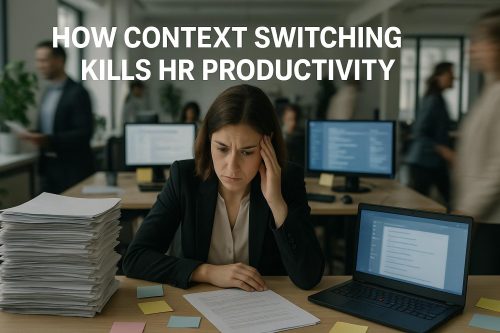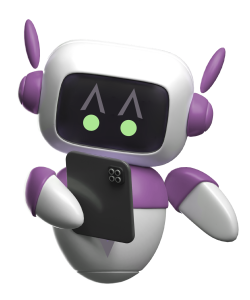By 2030, AI will reshape media careers, creating 170 million future media jobs while 92 million roles may disappear. This shift brings exciting opportunities for those blending creativity with technology. Key trends include:
- AI in Media: 90% of content will be AI-assisted or AI-generated.
- New Roles: Jobs like AI Content Creator, Virtual Influencer Manager, and Immersive Experience Designer are emerging.
- Skills Shift: 39% of current skills will evolve or become obsolete. Proficiency in AI tools, storytelling, and AR/VR design will be essential.
- Revenue Growth: Media and entertainment revenue is projected to surpass $3.4 trillion by 2028.
To thrive, focus on developing hybrid skills – technical expertise paired with emotional intelligence and creativity. AI won’t replace human creativity; it will amplify it. The future of media careers lies in collaboration between humans and technology.
“AI Job Losses & Opportunities by 2030 | How AI Will Reshape the Workforce & Create New Roles”
How AI Changes Media Jobs
AI is transforming how media professionals work by automating repetitive tasks, allowing more time for creative and strategic efforts. This shift is happening quickly, with projections suggesting that up to 30% of media jobs could be automated by 2035. But this isn’t just about job displacement – it’s also about creating opportunities for growth and new types of roles.
Recent trends highlight this evolution. In the last three years, the share of tasks in online job postings that AI could handle has dropped by 19%. Hiring for positions heavily exposed to AI automation has seen a sharper decline (31%) compared to roles with lower exposure (25%). These changes indicate that companies are reevaluating where human creativity adds the most value versus where automation can take the lead.
At the same time, investment in AI is skyrocketing. A staggering 92% of businesses plan to adopt generative AI tools within the next three years. The AI-driven marketing industry alone is forecasted to hit $217.33 billion by 2034, with an annual growth rate of 26.7%. This surge is creating space for new roles in generative media, blending automation with human creativity.
New Generative Media Jobs
AI is driving the creation of entirely new roles in generative media. Advanced tools capable of producing voice, image, and video content with precision are expanding the possibilities for digital content creation. By 2025, it’s expected that 90% of marketers will rely on generative AI for content creation. Companies already using AI in their workflows report tangible benefits – 65% have seen improvements in SEO performance.
One emerging role is that of the AI content creator. These professionals specialize in operating AI tools, crafting prompts, refining machine-generated content, and integrating it with human creativity to maintain brand identity. As Jay Friedman, CEO of Goodway Group, puts it:
“Marketers who see AI as a productivity tool alone will miss out on its strategic potential”.
Another intriguing position is the virtual influencer manager. This role involves overseeing AI-generated personas that connect with audiences. The market for AI influencers was valued at $6.06 billion in 2024 and is growing at over 40% annually. Campaigns like Samsung’s #TeamGalaxy, which featured virtual influencer Lil Miquela, achieved over 120 million organic views and 24 million engagements. Professionals in this field manage both the technical and creative aspects of these AI-driven personalities, often using deep learning to fine-tune interactions.
Immersive experience designers are also in demand as AI continues to enhance augmented and virtual reality projects. These specialists combine technical expertise with creative vision to design engaging, lifelike experiences. Clarke Boyd, founder of Novela, highlights the importance of pairing creativity with data insights:
“Advertisers are going to get these controls with AI, meaning that those with the greatest strategic thinking will get the most value. Those who can understand the data and the process behind creating the data will be able to get more value”.
Automation and Human Work: Finding Balance
While these new roles demonstrate AI’s potential to expand creative possibilities, finding the right balance between automation and human expertise is crucial. AI thrives at handling repetitive tasks, analyzing data, and personalizing content, which allows professionals to focus on strategy, relationship building, and problem-solving. For example, sales professionals save an average of 2 hours and 15 minutes daily thanks to AI tools that manage tasks like data entry and scheduling. This extra time has enabled 82% of sales teams to strengthen customer relationships, with 70% reporting higher response rates from outreach efforts.
By 2025, AI is expected to drive 95% of customer interactions, enhancing personalization and improving user experiences. Yet, many companies emphasize that human involvement is still essential for maintaining trust and authenticity. Sebastian Siemiatkowski, CEO of Klarna, stresses:
“It’s so critical that you are clear to your customer that there will always be a human. Really investing in the quality of the human support is the way of the future for us”.
Seventy-three percent of businesses believe AI will enhance their personalization strategies. While AI can quickly generate content and process large datasets, it’s human qualities – like emotional intelligence, ethical judgment, and strategic thinking – that ensure content feels genuine and engaging.
Media professionals are increasingly adopting hybrid skill sets, learning to collaborate with AI tools while maintaining their creative edge. The key is understanding where AI adds the most value – such as in automation and data analysis – and where human input is essential. This balanced approach reflects the growing recognition that the future of media depends on combining cutting-edge technology with human expertise.
Top Future Media Careers for 2030
The media industry is evolving rapidly, driven by the integration of AI and human creativity. New career opportunities are emerging for those ready to collaborate with AI while preserving the human touch that audiences value. Below are some of the most promising roles that showcase the blend of technology and creativity shaping the media landscape.
AI Content Creator
AI content creators play a pivotal role in shaping AI-generated outputs to align with specific brand identities and creative visions. Their work involves crafting detailed prompts for AI systems, ensuring the content meets quality standards, stays consistent with the brand, and adheres to ethical guidelines. These professionals are often referred to as “prompt engineers”, as they specialize in guiding AI tools to produce content that resonates with audiences.
This field is already making an impact. Creative teams leveraging AI tools report a 40% boost in productivity, and nearly 70% of professionals in creative industries expect their roles to undergo major transformations in the next five years.
As Aneesh Raman, LinkedIn‘s Chief Economic Opportunity Officer, puts it:
“Everyone in every job is gonna generally be in a new job by 2030 ’cause the skills required for your job are gonna change at a fundamental level”.
AI content creators are at the forefront of this shift, ensuring that while AI enhances efficiency, human creativity and oversight remain central.
Virtual Influencer Manager
The role of virtual influencer manager has become a standout in the digital marketing world. These managers oversee AI-generated personas, handling everything from content creation and brand partnerships to engagement strategies. Virtual influencers are proving to be highly effective, achieving engagement rates up to three times higher than their human counterparts. With the market for virtual influencers expected to grow at an annual rate of 23% through 2030, brands are increasingly drawn to the connections these AI personas can establish.
Key responsibilities include designing virtual personas, managing brand collaborations, and analyzing engagement metrics. To succeed, professionals need strong communication skills, a knack for storytelling, and the ability to adapt to fast-changing social media trends. Social media consultant Alison Battisby from Avocado Social highlights:
“The most valuable skill for a social media manager is video creation and editing. Being able to shoot, edit, and craft a compelling story that grabs attention in the first few seconds with a great hook and keeps viewers engaged is key to success”.
This role underscores how AI is transforming marketing strategies while emphasizing the importance of human creativity.
Immersive Experience Designer
Immersive experience designers are redefining audience interaction by merging technology with spatial storytelling. These professionals create AR/VR content that feels both engaging and realistic. As global spending on AR/VR is projected to surpass $160 billion by 2025, the demand for designers who balance technical expertise with creative vision is skyrocketing.
Their responsibilities include designing user interfaces for virtual environments, crafting interactive storytelling experiences, optimizing performance across devices, and collaborating with developers on visual effects. Proficiency in tools like Unreal Engine and Unity is often essential.
Key Technical Skills:
- Expertise in platforms like Unreal Engine or Unity
- 3D modeling and animation
- Designing user experiences for virtual spaces
- Optimizing performance for various devices
- Cross-platform development knowledge
Creative Skills:
- Crafting compelling narratives
- Visual and spatial design
- Understanding user behavior and psychology
- Seamlessly integrating brands into immersive environments
Salary Expectations:
| Role | Salary Range |
|---|---|
| XR UX/UI Designer | $85,000–$115,000 |
| AR/VR Product Manager | $110,000–$145,000 |
| 3D Artist/Animator for AR/VR | $70,000–$95,000 |
| AR/VR Research Engineer | $120,000–$160,000 |
Geography plays a significant role in salaries. For example, AR/VR professionals in Silicon Valley earn between $110,000 and $160,000 annually, while similar roles in Austin, Texas, average $85,000 to $120,000 per year.
This career path highlights the transition from traditional design to fully interactive, three-dimensional experiences.
Generative Media Specialist
Generative media specialists focus on creating AI-driven content using advanced technologies like GANs (Generative Adversarial Networks). They work with advertising agencies, entertainment companies, and tech firms to produce cutting-edge content.
The market for generative AI is booming, with projections showing growth from $20.9 billion in 2024 to $136.7 billion by 2030, at an annual growth rate of 36.7%. Job postings requiring generative AI expertise have surged by 400%.
Daily tasks include training AI models, collaborating with creative teams, and troubleshooting technical challenges. Professionals in this field also optimize workflows to improve efficiency.
Core Competencies:
- Knowledge of machine learning and neural networks
- Proficiency in programming languages like Python and tools such as TensorFlow or PyTorch
- Strong data management and preprocessing skills
- Creative problem-solving for technical hurdles
- Project management for AI initiatives
Generative AI expertise can significantly boost earning potential. Entry-level specialists earn $75,000–$95,000 annually, while experienced professionals can command $110,000–$150,000. Senior specialists with advanced technical skills may earn between $160,000 and $220,000 per year.
This role reflects the growing demand for AI-powered content solutions across various industries.
These emerging careers are just the beginning of how technology is reshaping creative fields. Success will belong to those who embrace both the technical advancements and the human elements that make content meaningful and engaging.
sbb-itb-eb32bf3
How HR Automation Affects Media Hiring
As AI reshapes the media landscape, HR automation plays a key role in finding talent for positions like AI content creator and immersive experience designer. With the industry’s rapid evolution, companies face the challenge of aligning candidates with innovative roles that demand a mix of creative and technical skills.
Smarter Talent Hiring
AI-driven HR tools are transforming how media companies scout for talent suited to emerging media roles. These tools sift through extensive talent pools, analyzing social profiles and portfolios to uncover candidates who blend creativity with technical know-how.
Take Mastercard and Chipotle, for example. Mastercard expanded its talent network from under 100,000 to over 1 million profiles while slashing interview scheduling times by 85%. Meanwhile, Chipotle’s AI assistant, ‘Ava Cado,’ increased application completion rates from 50% to 85% and cut hiring timelines from 12 days to just 4.
“The AI agent is designed to figure out if you’re a good fit for the job, and frankly, I think it does a better job than humans. It does it faster and more effectively, and it does it in a bias-free way.”
- Sean Behr, CEO of Fountain
For media roles of the future, AI tools have an edge in spotting patterns that human recruiters might overlook. For instance, they can identify a graphic designer with machine learning expertise or a video editor skilled in AI-driven post-production. This precision is especially crucial for generative media jobs that demand both creative flair and technical expertise.
RingCentral has also seen impressive results, growing their talent pipeline by 40% and improving its quality by 22%, while increasing interest from underrepresented groups by 40%. This ensures a broader range of perspectives in the creative process.
Currently, 72% of HR professionals use AI tools weekly, and 67% of hiring decision-makers cite time savings as the primary benefit. This efficiency not only streamlines hiring but also sets the stage for impactful reskilling programs in media.
Preparing Workers for New Roles
While AI simplifies hiring, it also highlights the need for rapid reskilling to address skill gaps in future media careers. This is especially pressing, as 39% of employees’ skills are expected to become outdated between 2025 and 2030.
AI-powered training systems create customized learning paths tailored to individual employees. These tools assess existing skills, pinpoint gaps, and design personalized curricula for transitioning into roles such as virtual influencer manager or AI content creator.
Major companies are leading the charge in reskilling efforts. Ericsson has trained thousands of employees in AI skills since 2018. Verizon aims to prepare 500,000 individuals for future jobs by 2030. Bank of America has invested $25 million to reskill underrepresented groups for tech careers.
AI avatars are also being used to produce consistent, self-paced training videos, significantly reducing production time.
“Gen AI technologies, such as chatbots and video production tools, speed up training material development while improving quality.”
- Charlotte Chiew, NCS
However, successful reskilling requires a balance between technology and human-centered approaches.
“While technical skills are key, it’s even more important that we focus on building ‘soft’ skills. As AI and automation become more capable not only at routine, manual tasks but also knowledge-based work, unique human capabilities such as creativity, emotional intelligence, empathy, unstructured problem solving, judgment, and ethical decision-making will be the key to enabling people to retain competitiveness in the job market.”
- Charlotte Chiew, NCS
For media companies, this means designing training programs that go beyond technical skills to include creative problem-solving and emotional intelligence.
“Upskilling in AI shouldn’t feel like an extra burden – it should be an integrated, accessible part of work. Employers must create structured learning pathways, offer hands-on projects, and allow time for employees to develop AI skills within their roles, rather than outside of them.”
- Imane Ziouche, CFG Ambassador
Despite 89% of organizations acknowledging the importance of AI skills, only 6% are taking meaningful steps to address the gap. By combining efficient hiring with targeted reskilling, media companies can position themselves to thrive in the evolving job market, securing and developing talent for future media careers.
Getting Ready for 2030 Media Careers
The media industry is changing fast, and staying ahead means being prepared for a future shaped by technology. According to the World Economic Forum, 170 million new jobs are expected to emerge by 2030, with more than half requiring a solid understanding of digital technologies. Below, we’ll dive into essential strategies – spanning education, portfolio building, and networking – to help you thrive in media careers of the future.
Education for Future Media Jobs
When it comes to preparing for media roles in 2030, traditional degrees may not always be the best route. The industry increasingly values targeted, practical skills over long academic programs. Microcredentials, for instance, allow you to gain job-ready expertise in just a few months, making them a smart choice for those looking to stay competitive.
“In our digital age, tech literacy is not a luxury but a necessity.” – Reshma Saujani, Founder of Girls Who Code
Take Coursera’s adaptive learning technology as an example. Introduced in July 2024, it uses machine learning to tailor educational content based on individual strengths and weaknesses, offering a more personalized learning experience. Programs that combine technical expertise with creative skills are particularly valuable. For instance, AI content creators need to understand machine learning while mastering storytelling techniques, and immersive experience designers must be skilled in VR/AR technologies and user experience design.
Here’s where to focus your learning efforts:
- Technical Skills: Build expertise in areas like data analytics, AI, machine learning, and digital media production. Proficiency with tools such as Python, Adobe Creative Suite, and content management systems is increasingly important.
- Soft Skills: Develop creativity, emotional intelligence, and critical thinking – qualities that remain essential for roles like virtual influencer manager.
- Lifelong Learning: With technology evolving rapidly, staying committed to ongoing education is key to staying relevant.
Creating an AI-Enhanced Portfolio
A well-crafted portfolio can be your ticket to standing out in the media landscape of 2030. An AI-enhanced portfolio goes beyond listing skills – it showcases your hands-on experience, problem-solving abilities, and familiarity with cutting-edge technologies.
To make your portfolio shine, include a range of projects that demonstrate your versatility. For each project, detail the problem you tackled, your approach, the challenges faced, and the final results. Use AI tools to elevate your portfolio – leverage AI-powered language models for writing compelling descriptions, include interactive prototypes, and even apply sentiment analysis to highlight positive feedback.
For inspiration, take a look at examples like AEVOLUTION Investment, which emphasizes strategic approaches to tech investments, or MaryUX Design, known for its visually appealing and efficient designs for startups. As Carlos Gonzalez de Villaumbrosia, Founder & CEO of Product School, explains:
“Building a Product Portfolio with AI is a strategic move that can propel your career as a Product Manager to new heights. It serves as a powerful tool for showcasing your achievements, networking with industry peers, and staying ahead of the curve in an ever-evolving field.”
Focus on real-world projects that demonstrate measurable results and creative problem-solving. Tools like Unicorn Platform offer templates designed for AI specialists and data scientists, while platforms such as Behance are great for displaying visually engaging work. Keep your portfolio updated with new projects and skills to reflect your growth and readiness for an AI-driven media industry.
Building Professional Networks in Media
In a media world increasingly shaped by technology, networking remains a crucial part of career growth. Building meaningful connections can often matter more than simply having a large contact list.
“I think of networking as making new friends. Ask questions about their work and share opportunities that might help. And if you don’t ‘connect’, they’re not your people, and that’s okay.” – Louisa Tan, Common Exception
Here are some strategies to strengthen your professional network:
- Follow Up: After meeting someone, always reach out to maintain and build the relationship.
- Diversify Your Interactions: Networking opportunities can happen anywhere – at industry events or even in casual conversations.
- Enhance Your Online Presence: Keep your professional profiles updated and engage with relevant industry content.
- Volunteer Your Skills: Joining nonprofit organizations or creative initiatives can help you meet like-minded professionals while contributing to meaningful projects.
- Stand Out: Small things, like dressing distinctively or carrying business cards, can make you more memorable to new contacts.
Conclusion: Media Careers in 2030 and Beyond
The media world is shifting at an incredible pace. By 2030, the global AI market in media and entertainment is projected to skyrocket from $14.81 billion to $99.48 billion. This growth signals a future where AI doesn’t just assist – it elevates human creativity to new heights.
This transformation is already reshaping the skills needed for media roles. But instead of causing worry, it opens doors for those willing to adapt. Emerging positions like AI content creators, virtual influencer managers, and immersive experience designers are just the beginning of what’s possible.
Even as technology advances, the human touch remains irreplaceable. In fact, soft skills are becoming more critical than ever. Aneesh Raman, LinkedIn’s Chief Economic Opportunity Officer, emphasizes this shift:
“Soft skills are the new hard skills. The technical skills are giving way to the soft skills, becoming the it skills, the in-demand skills, the durable skills.”
AI won’t replace human creativity – it will enhance it. Generative media roles are already blending human insight with AI tools, creating opportunities that were unimaginable just a few years ago.
To thrive in this evolving landscape, professionals must embrace what Christina Inge, Author and Instructor at Harvard Division of Continuing Education, describes as the new reality:
“Your job will not be taken by AI. It will be taken by a person who knows how to use AI.”
The key to success lies in combining AI literacy with creativity, emotional intelligence, and strategic thinking. Media professionals in 2030 will be those who see AI as a partner, not a threat, using it to craft more engaging, personalized, and impactful content. The future of media careers is all about collaboration between cutting-edge technology and uniquely human skills – a partnership that promises endless opportunities for those ready to evolve.
FAQs
What new skills will media professionals need to succeed in 2030 with the rise of AI?
By 2030, AI is set to transform the skill set required for media professionals to succeed. With AI tools becoming a key part of content creation and distribution, professionals will need to sharpen their technical abilities in areas like AI-powered content generation, data analysis, and understanding audience behavior. These skills will enable them to leverage AI for creating media that’s both engaging and informed by data.
However, human creativity, critical thinking, and flexibility will remain irreplaceable. While AI can take over routine tasks, it’s human imagination that will shape strategies, craft compelling stories, and spark innovation. New roles such as AI content creator, virtual influencer manager, and immersive experience designer are likely to emerge, blending cutting-edge technology with traditional media expertise. Thriving in this landscape will require a mix of technical proficiency and distinctly human capabilities.
What are the top emerging media careers blending AI and creativity?
Emerging media careers are reshaping the industry by merging AI with human creativity in fascinating ways. Take the role of an AI Content Creator, for instance. These professionals use artificial intelligence to generate tailored written or visual content on a large scale. The result? Faster production without sacrificing the creative spark that makes content engaging.
Then there’s the intriguing job of a Virtual Influencer Manager. This role involves designing and managing digital avatars that engage with audiences online. It’s a mix of storytelling, animation, and marketing, all aimed at creating virtual personalities that feel authentic and relatable.
Finally, Immersive Experience Designers are pushing boundaries by building interactive virtual and augmented reality environments. Combining AI tools with creative design, they craft experiences that captivate and leave a lasting impression. These careers highlight how the partnership between AI and human ingenuity is shaping the future of the media landscape.
How can media professionals adapt to AI-driven roles in the future of the industry?
To excel in AI-driven media roles, it’s essential to develop a blend of technical know-how and interpersonal abilities. On the technical side, familiarity with AI tools, basic programming (like Python), and data analytics is crucial. These skills enable you to leverage technology for smarter content creation and more efficient workflows.
Just as important are soft skills like creativity, flexibility, and emotional intelligence. These traits help you work alongside AI systems while focusing on tasks that require a human touch – things machines simply can’t do.
To stay ahead, commit to ongoing learning. Take part in workshops, explore online courses, and keep up with the latest AI developments. This ensures your expertise remains sharp in a constantly changing field.





